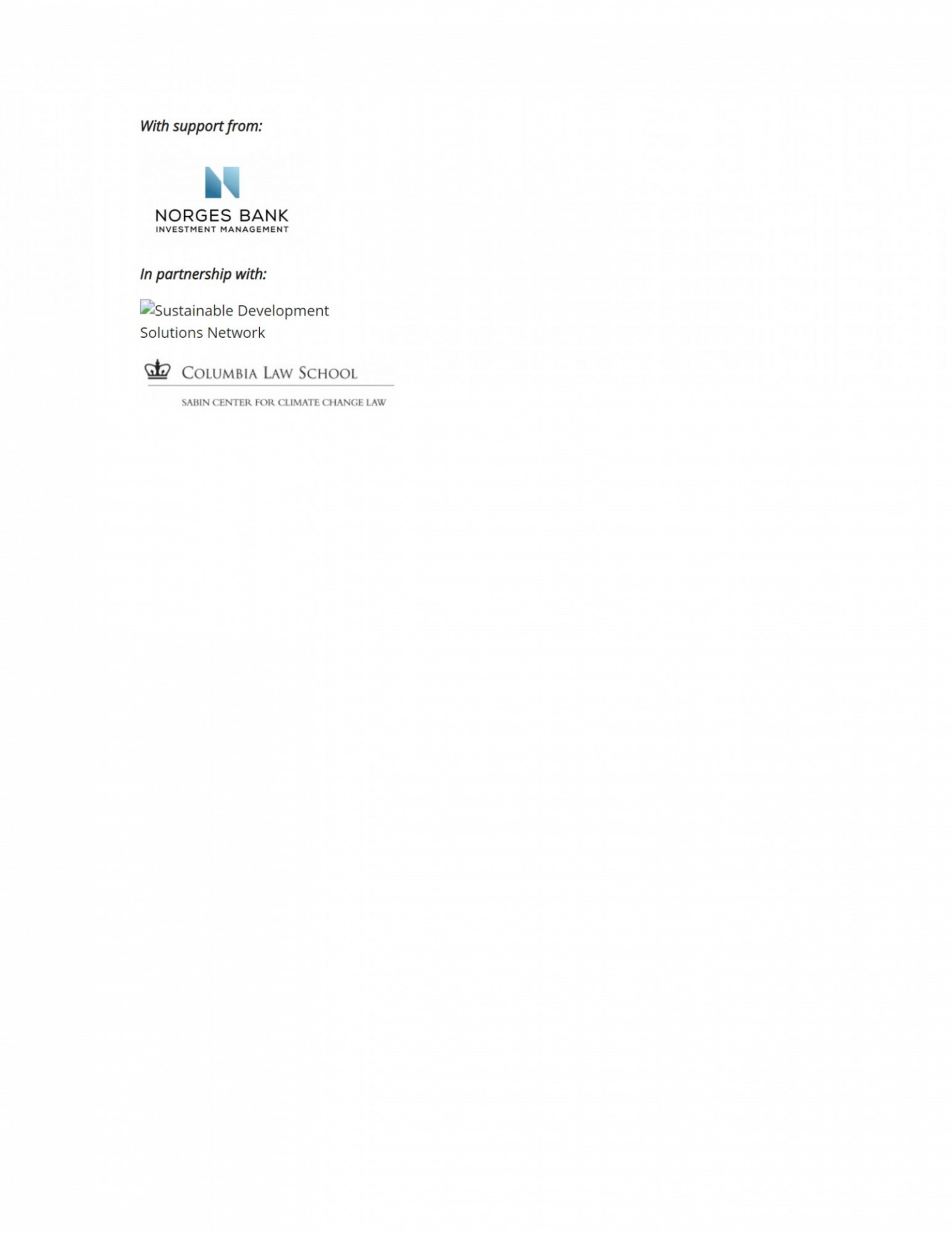11th Annual Columbia International Investment Conference: Climate Change and Sustainable Investment in Natural Resources: From Consensus to Action
The Conference Report, and a shorter outcome document, are available here.
The Conference program is available here.
See panelist biographies here.
Jeffrey Sachs’ PPT presentation is available here.
In the lead-up to the Conference, a Blog Series was published on the Earth Institute’s State of the Planet. The Series framed some of the questions and issues that were raised during the Conference, and helped to kick-start discussions.
As the world seeks to move from consensus to action on climate change, one burning question remains: can natural resource investments be sustainable in the age of climate change? Landmark agreements concluded in 2015 clearly lay out global consensus on the need to curb human-induced climate change and to achieve sustainable development, and these ambitious agreements have important implications for the world’s approach to natural resource investments. Yet no coherent vision has emerged to guide how global actors can shift the course of natural resource investments in a way that leads to deep decarbonization, addresses the development needs of resource-dependent low-income countries, and promotes a global governance structure that supports rather than inhibits national-level actions on climate change and development. This Conference brought together diverse stakeholders to explore the key challenges of and necessary steps to developing and implementing such a vision.
The Conference took as its starting point the Paris Climate Agreement, reached last December at COP21 (the 21st meeting of the Conference of the Parties of the UN Framework Convention on Climate Change). The Paris Agreement marks a historic milestone in curbing human-induced climate change, yet the real challenge lies ahead, in implementation. The agreement sets the goal of limiting global warming to “well below two degrees Celsius” above pre-industrial levels, and to pursue efforts to limit the increase to 1.5 degrees Celsius. Achieving this objective will require dramatic, rapid, coordinated, and global decarbonization of energy systems.
Notably, the Paris Agreement also recognizes that the reduction of emissions should be “on the basis of equity, and in the context of sustainable development and efforts to eradicate poverty.” The fundamental link of climate action with sustainable development is also underscored by the inclusion of climate-change control as Goal 13 of the Sustainable Development Goals (SDGs), adopted in September 2015. Both the SDGs and the Paris Agreement make clear that climate-change mitigation must be pursued within the broader agenda of ending poverty, promoting economic development, ensuring social inclusion, and protecting the physical environment.
Addressing climate change—and implementing the Paris Agreement and the SDGs—will require a tremendous amount of ambition, participation, and collaboration across society, including governments, businesses, investors, international organizations, civil society, and the general public. Even looking solely at the question of sustainable investment in natural resources, difficult issues will be confronted. For example, to what extent should poorer countries be allowed or encouraged to use their fossil-fuel resources while richer countries cut back sharply on fossil-fuel use? What safeguards are necessary to ensure that climate change mitigation efforts support equitable development? Do international legal frameworks for investment need to be overhauled to ensure that countries are not constrained in their efforts to address climate change?
This Conference, which took place one week before COP22 was chaired by the Government of Morocco, offered a high-level opportunity to explore the complex questions tied to natural resource investments in light of the Paris Agreement, the SDGs, and the real challenges facing low-income countries within the global economy. The outcomes of the Conference provided inputs to COP22, notably the related “Low-Emissions Solutions Conference.”
The Conference’s sessions addressed the necessary shifts required in natural resource investments to promote equitable climate action, including issues related to:
– how to anticipate and implement the changing role of hydrocarbons in the global energy system, including planning for and managing hydrocarbon reserves and correlated infrastructure that will be “stranded” in the process of decarbonization;
– how low-carbon strategies can and should be adapted to the development needs of low-income countries;
– how to manage land use to mitigate climate and environmental impacts and to maximize benefits for development, including for local communities;
– the role of private sector finance, including opportunities for institutional investors; and
– the development of new international legal frameworks and improved global governance to support national-level actions on climate change and sustainable development.
Speakers included:
- Joao Campari, Special Advisor to the Minister, Ministry of Agriculture, Livestock and Food Supply, Brazil
- Luca Cosentino, Executive Vice President, Energy Solutions, Eni
- Penny Davies, Program Officer, Equitable Development, Ford Foundation
- Danielle Fugere, President, As You Sow
- Mark Gainsborough, Executive Vice President, New Energies, Shell
- Alfred Griffin, President, NY Green Bank
- Hon. Tim Groser, New Zealand Ambassador to the United States
- Craig Hanson, Global Director of Food, Forests & Water, World Resources Institute
- Stephen Heintz, President, Rockefeller Brothers Fund
- Andrea Illy, President, illycaffè S.p.A.
- Naoko Ishii, CEO and Chairperson, Global Environment Facility (GEF)
- Chris Jochnick, President and CEO, Landesa
- Petter Johnsen, Chief Investment Officer Equity Strategies, Norges Bank Investment Management
- Nezha Larhrissi, Senior Advisor, Ministry of Environment, Kingdom of Morocco
- Éric Martel, President and CEO, Hydro-Québec
- Pedro van Meurs, President, Van Meurs Corporation
- Minister Amina J. Mohammed, Minister of Environment, Nigeria (via video)
- Allan Rosas, Judge, European Court of Justice
- Jeffrey D. Sachs, Director, Center for Sustainable Development, Columbia University
- Jérôme Schmitt, Senior Vice President Innovation & Energy Efficiency, Total
- Marie-Claire Cordonier Segger, Senior Director, Centre for International Sustainable Development Law (CISDL)
- Ilana Solomon, Director, Responsible Trade Program, Sierra Club
- Francesco Starace, CEO and General Manager, Enel
To gain additional background on some of the Conference topics, participants are invited to visit our page on fossil fuel companies and climate change.

